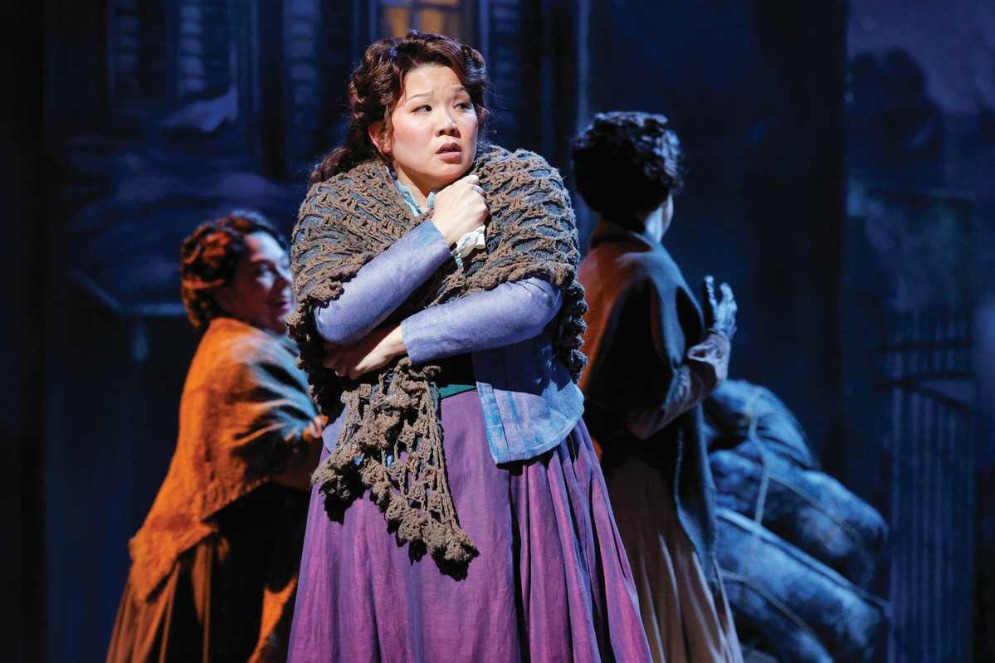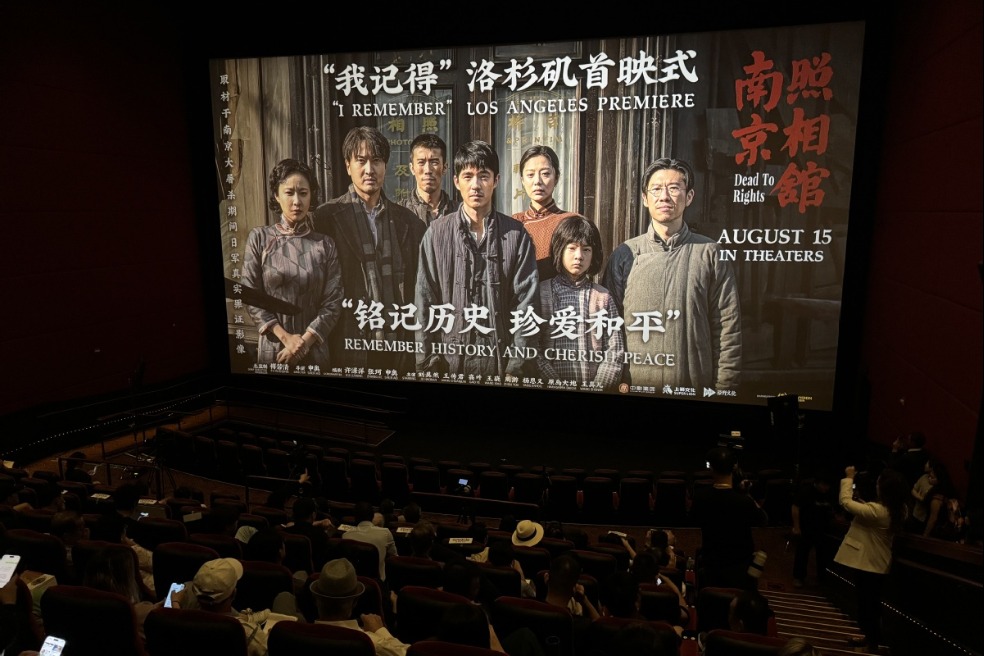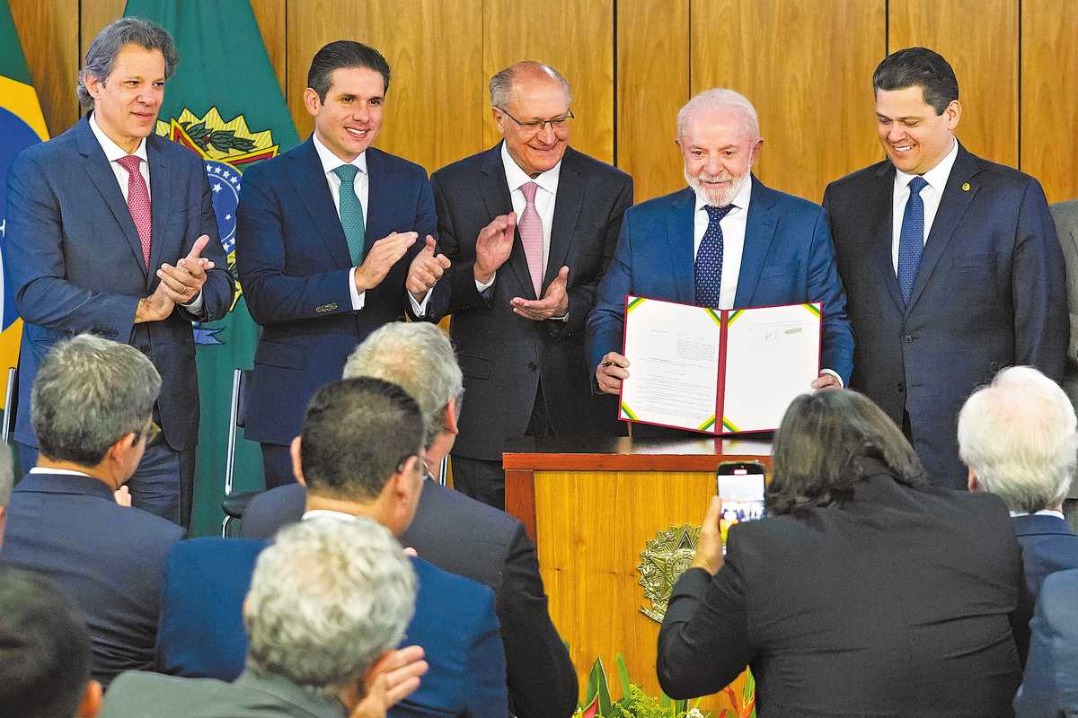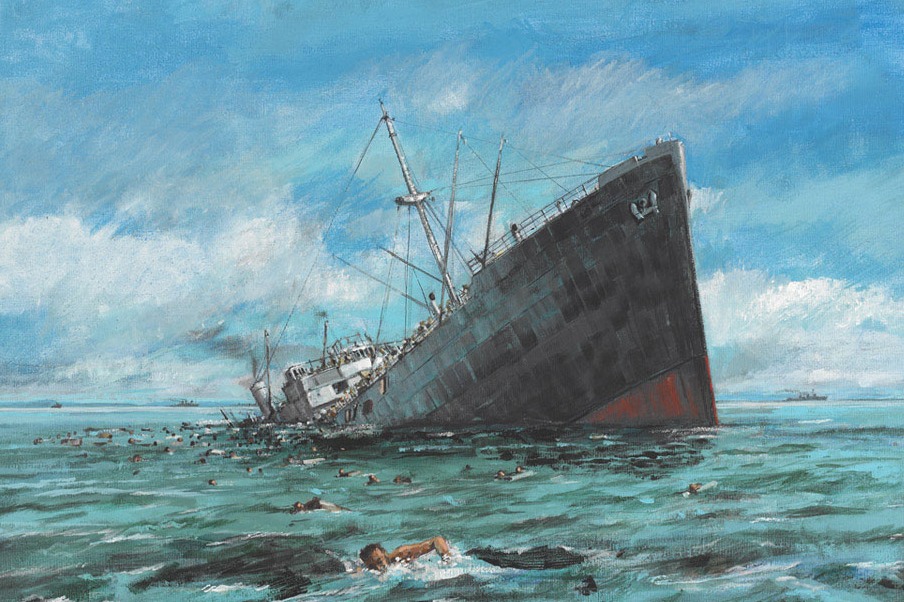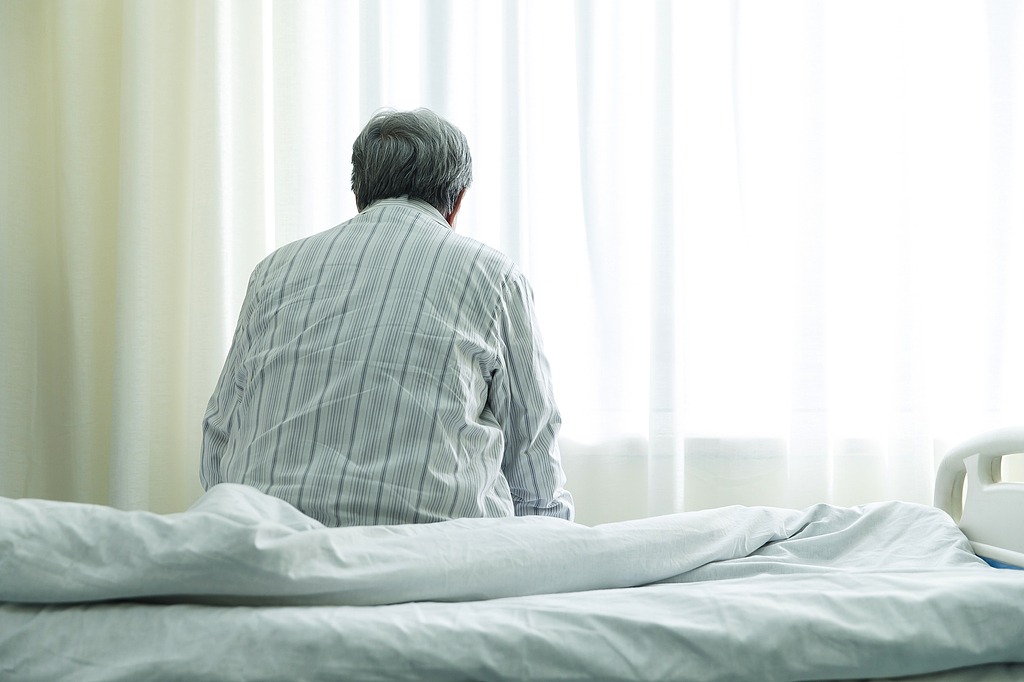Japan urged to reflect on its aggression
Tokyo needs to face history squarely to earn respect, Chinese FM emphasizes

Chinese Foreign Minister Wang Yi on Friday called on Japan to confront its wartime past, warning that only by facing history can the country avoid repeating past mistakes.
Speaking at a joint news conference after the Lancang-Mekong Cooperation Foreign Ministers' Meeting, Wang reiterated China's stance on historical issues, as Friday marks the 80th anniversary of Japan's surrender in World War II.
Eight decades ago, Japan was defeated, accepted the Potsdam Proclamation, and announced its unconditional surrender, Wang said.
Yet today, certain forces in Japan still attempt to whitewash, deny, distort, and even rewrite history, glorifying war criminals — a disgraceful act which Wang said only brings shame upon themselves.
He condemned such actions as a challenge to the United Nations Charter, the post-war international order, human conscience, and all the victorious nations and their people.
"Only by facing history can Japan earn respect; only by drawing lessons from the past can it forge a future; and only by remembering history can Japan avoid straying onto the wrong path again," Wang stressed.
In Tokyo on Thursday, officials and experts at a symposium themed "80 Years since the End of the Pacific War, 80 Years since Japan's Defeat: Toward Building a Peaceful World", expressed similar viewpoints.
The symposium was organized on Thursday by the Association for Inheriting and Propagating the Murayama Statement, a Japanese civic group dedicated to upholding the 1995 Murayama Statement that acknowledges Japan's wartime mistakes.
Former Japanese prime minister Yukio Hatoyama pointed out that true "patriotism" means confronting historical facts and acknowledging past mistakes with courage.
He stressed that Japan cannot simply claim that "compensation has been completed and responsibility fulfilled". Responsibility ends only when the victorious countries or former colonies declare they will no longer pursue claims.
He said: "I believe that promoting peace and the development of democracy, based on a profound reflection on past history, is the path Japan should follow."
On Friday, Prime Minister Shigeru Ishiba expressed "remorse" over the war, which he called a mistake, restoring the word in a Japanese leader's address for the first time since 2013, when former premier Shinzo Abe shunned it.
Ishiba, however, did not mention Japan's aggression across Asia or apologize. Earlier in the day, at least one cabinet minister joined thousands of visitors at the notorious Yasukuni Shrine.
Takakage Fujita, secretary-general of the Association for Inheriting and Propagating the Murayama Statement, quoted Japanese writer Shuichi Kato: "Distorting history brings absolutely no benefit and causes countless harms."
Chinese Ambassador to Japan Wu Jianghao said that 80 years after Japan's defeat, the country should fulfill its serious political commitments, thoroughly repudiate any actions that distort, glorify, or deny the history of aggression.
"Japan should demonstrate through concrete actions its adherence to peaceful development, thereby earning the trust of the Chinese people, the Japanese people, neighboring Asian countries, and the international community," Wu said.
Akira Yamada, a professor at Meiji University, noted that Japan's pacifism has often been framed by the slogan "not to become a new victim", but emphasized that "avoiding becoming a new aggressor" is even more important.
Yamada stressed that Japan should foster friendly relations with China and warned that hostile rhetoric toward China is extremely dangerous. "Distorting historical understanding will ultimately erode our own politics and society," he said.
Hajime Takano, director of the East Asian Community Institute, also warned that hostile rhetoric toward China is dangerous and argued that the idea that "a Taiwan emergency is a Japanese emergency" is unfounded. He noted that the Taiwan question is a legacy of the Chinese civil war.
Takano also criticized certain Japanese media for reporting on related events without considering the complex background.
Tomoyoshi Kimura, director of the Northeast Asia Dynamics Study Group, emphasized that most people in Japan today were born after the war. Although they did not directly commit wartime crimes, they still bear a responsibility to humbly inherit and convey historical lessons.
Zhao Jia in Beijing and agencies contributed to this story.
houjunjie@chinadaily.com
?

















